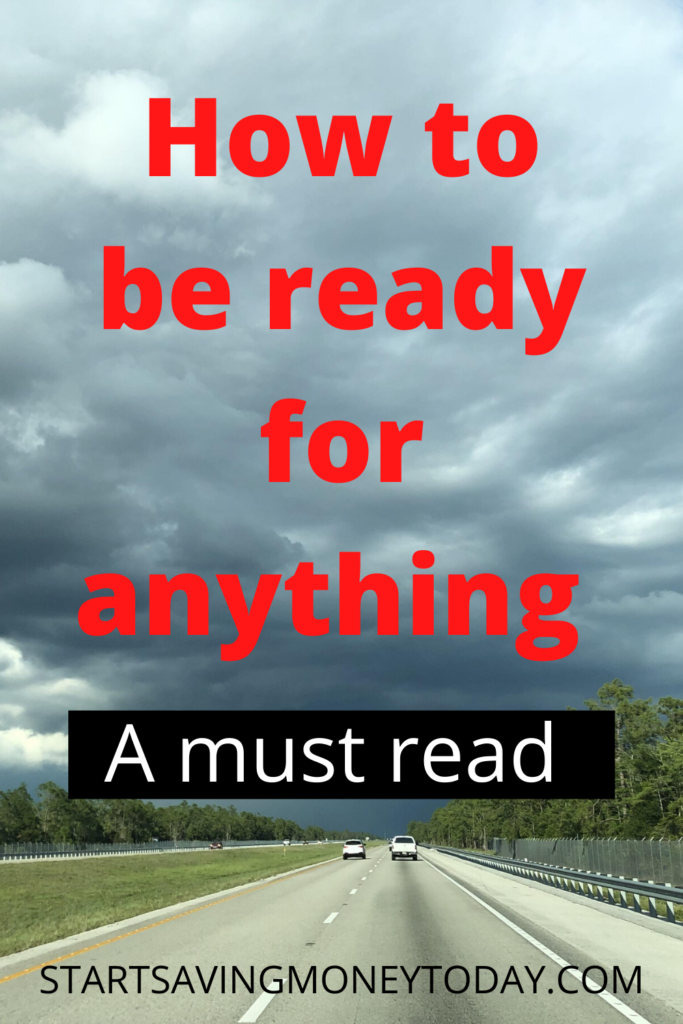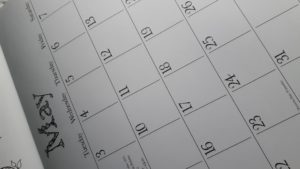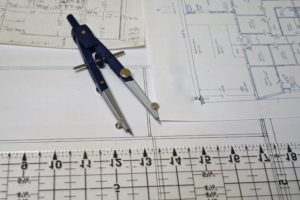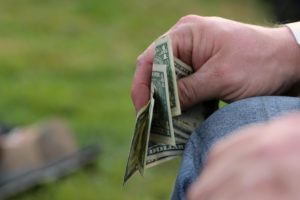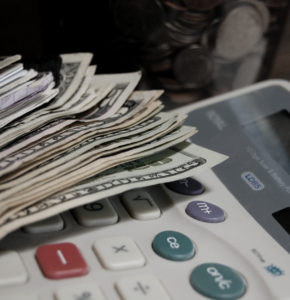Be ready for anything
At the end of last year (2019) most people didn’t even know the word coronavirus. There was certainly no way to know how it would impact their lives. Now, because of a virus no one had heard of, we’re entering week five of a lockdown. Many people are seriously ill. Others are laid off work: many businesses and just about all schools are closed: gatherings are all but banned: we are supposed to shelter in place. In this article I will explain how to be ready for anything. No it’s not too late.
Think about all the repercussions that come with that list… There a lot, and for many—ill or not—finances are a major concern.
Who could have known this was coming? What could be done to be ready for this? The answer is to plan. You can plan for anything by planning for everything—even the unexpected. Planning for anything isn’t as difficult as it sounds. It is possible to be ready for anything and everything.
Note: I’m not singling out the COVID-19 virus. There’s always a chance of unexpected illness, or injury, or unemployment. All these events (plus natural disaster) have something in common: It’s uncertainty. Life happens. We won’t know the specifics—the what, the when, the duration, or the cost. That’s where planning comes into play. How much do you need to have in reserve to get through anything?
I’ll explain …
How to be ready for anything
Let’s start by talking about routines.
I’m sure we’ve all heard something along the lines of “You need to take care of your day-to-day living.” And you really do need to do that or all kinds of things don’t get done. Everyone has a schedule and most of it is routine. No matter how tight it is or how much free time you have, most of what you do is done routinely.
Generally, people work or go to school, maybe both. Work days and school schedules tend to be routine. You know when you need to leave for work or school in order to arrive on time. You know to take with you the items you’ll need to get through the day: pens, pencils, last week’s report, lunch or the money to buy it, etc. That’s all routine. Then there are schedules and routines for maintaining our stuff, like our car or computer, and also ourselves (personal care: doctor appointments, haircuts, etc.). To keep ourselves and our stuff in order it’s important to stay current on our obligations and commitments. Even if it’s as simple as changing the oil in the car every 3,000 miles, or blowing the dust out of the computer fan a couple of times a year, or keeping that appointment for your yearly physical, we need to keep to our routines. (Think about this: Some doctor appointments can’t be made up. Take your annual checkup for example. After enough time, it’s too late to have your exam this year. Will that make any difference? Well, maybe…)
Plan more carefully be proactive
It’s important to manage our time. We don’t want to find ourselves in a situation where in order to deal with an emergency, we have to skip an important event like an overdue doctor appointment or oil change that should have been done months ago.
You know your car requires routine oil changes. If you postpone them very long, the engine will begin to have problems. Initially, it might start running hot, then hotter. Eventually, you could blow a gasket or have some other problem that requires an expensive fix. Taking care of our bodies is much the same. If we skip a checkup, then another and another… we could lose the opportunity for a simple fix (say a dietary change) to maintain health. Later, we might need major “body work.”
Not following routines can certainly cause problems. The unexpected can also cause problems, and by its very nature, we don’t know when the unexpected—often in the form of a disaster—will occur. In times of emergency, it may be required for us to vary from our routines. In fact, it’s those times when we may need to cancel routine events. They might even be cancelled for us. With nonessential businesses closed and the social distancing rule in place, that’s happening a lot recently. Just try to find an open barbershop. Nope. There aren’t any. A professional haircut is not going to happen. (I’m glad my wife is handy with clippers.)
If, because we are not current with our obligations and commitments there are problems in the making before the unexpected happens (and there are, even if they have not yet appeared), they are likely to have increased effect after it does. Routines/schedules—planning and preparation—in anticipation of something/anything happening (even the unexpected) can minimize its impact.
Being current on our daily life issues will go a long way to being ready for anything.
Take that thought into the financial arena
So far, I’ve addressed the benefit of keeping routines to our bodies and our things. Neglecting care or maintenance routines often results in financial problems. Sticking to them, however, may allow us some leeway when the unexpected happens. Consider that and think about this: Our finances can benefit when we follow routines that make and keep them healthy. The unexpected can be expensive, but we can employ routines to help us prepare and be ready for anything.
Finances and planning
If you’ve read any of my other posts, you know I’m big into budgeting, being debt free, sinking funds, and having an emergency account. There are consequences to not routinely using these tools.
Each of us knows many people who have not planned their finances and are seriously in debt. They have to work. And right now, that’s a problem. There are predictions that about a third of the US workforce could be laid off, furloughed, or some other term that means out-of-work before the economy begins to return to normal. Is that a solid number? I don’t know, but all you have to do is listen to the news and you’ll be aware that the government is making and attempt to mitigate the effect of money that’s not being spent or generated. (With businesses closed, no money is being generated. Also, people without pay, concerned about running out of money, are cutting back on spending.
With the first paycheck they miss, and certainly with the first payments they miss, many people start to lose things like electricity and cars. I know it takes more than a month to actually lose these and other items, but if you miss one payment and don’t make it up, the entities to whom you owe money become aware that they are on their way to seeing a loss. It isn’t long before they take action. Repossession, required payment-in-full, or severance of service are ways businesses cut their losses. Unfortunately, it can become a vicious cycle.
I know that recently unemployment benefits have been made more broadly available. Those benefits can be helpful, but they are not a panacea. Usually, unemployment is half of what you would normally earn, and it’s considered taxable income. Unemployment benefits are definitely better than nothing. But…can you pay all your financial obligations on half your pay?
On a (semi) lighter note, action has been taken to alleviate the fear of eviction, foreclosure, and some other major consequences that often plague people who suddenly find themselves without money in what are (generally) better times. That’s great. We won’t have to deal with these issues until sometime in the future. Still, that future will come. At this point in time, we have no idea what will be required of us to rectify the arrearages. Even now, using financial planning tools can go a long way to preparing a for the unknown, like this COVID-19 virus or your next unexpected car repair.
What does this have to do with planning for anything
Just like keeping our day to day lives organized and completing tasks routinely can reduce a backlog of responsibilities and free up time for us to deal more expediently with issues presented in an emergency, having our finances in order can buffer the potential loss of things like cars, houses, computers (anything you’ve financed) when those emergencies sideline your income or require funds to get through. (It could be both.) How do you prepare for something you know nothing about like the coronavirus or the next time you have a flat tire on your way to work? Of course, these two events won’t impact us on the same level, but both are unexpected and both require financial resources to handle.
Part of taking care of today’s routine business is preparing financially for the future. Do it now. Do it methodically (routinely), little by little. We may not be able to see the unexpected coming, but we do know that funds we put away today can help meet future need. Use the tools I mentioned in the previous section. (To learn more about them use the links I provided.)
Bring it all together
Earlier in this article I said that since we hadn’t even heard about the coronavirus, we couldn’t prepare for it for dealing with it. That statement is true, but it might be more accurate to say we couldn’t have been prepared for this specific event. Not only is there sickness and a terrible mortality rate, but daily life—living—has definitely changed. (Note: In this post, I absolutely will not address the issue of the coronavirus at any level other than personal.) How do you prepare for something you know nothing about such as the coronavirus or the next time you have a flat tire on your way to work? Of course, these two events won’t impact us on the same level, but both are unexpected and both require financial resources to handle. It’s being prepared financially that I want to talk about.
The flat tire is inconvenient and will cost us time and money. At the very least, we’ll spend time changing the tire, and sooner rather than later it will have to be fixed or replaced. That will cost money. It’s also possible we’d need to find alternative transportation; a taxi would cost money. We might be late to work. That’s lost wages, possibly a lost contract. And, hopefully, we didn’t cause an accident. That would elevate the cost in both time and money, not to mention the trauma. As for the coronavirus, other than terrible death rate, we don’t know what the total medical impact will be. We don’t know how long we’ll be out of work. We don’t know what the costs will be. (Also, we can’t forget that there are emotional costs.)
What we should know is that disaster always has a financial dimension. Funds set aside to help us meet our financial needs when something unexpected happens can mitigate the way we have to handle other aspects of that unexpected event. Of course, that means preparing ahead of time.
Definitely, it’s too late to prepare ahead for our current circumstances, but using the financial tools I mentioned above you can take control today’s spending. If you do that it’s quite possible, you’ll find ways to reduce your expenses. Set that money aside. Earlier in this post I said, “You need to take care of your day-to-day living.” Part of taking care of today is preparing for tomorrow. Some of the money we have today needs to be designated for future use. Right now, that may be a challenge, but every dollar you do set aside is one you won’t have to wonder where it’s going to come from when the next unexpected event occurs.
Use the tools I mentioned above, budgeting, using a spending journal, being debt free, using sinking funds, and having an emergency account, to help you accomplish this goal.
Three aspects of preparing for the unknown
Step 1
In order to prepare for anything, you need to prepare for everything. It’s important to have your time organized so you have your commitments covered. Here, I’m talking about the “business practices” of living life, things like staying current on oil changes, shopping at planned times to maximize savings, cutting the grass (before your neighbors complain), doctor appointments, etc., etc., etc. There’s a lot involved in living a LIFE. Routines are very practical tools for navigating your lifestyle.
Step 2
Get your finances in order. Daily living takes money. We need to finance it with funds we bring in. It’s a really bad idea to go into debt to pay for daily life; limit debt. We also need to save money for the future, for events both planned and unexpected. To manage this, we need to live on less than we earn; we need to live below our means.
A budget is a great way to put order into your finances.
Before you can make a realistic, workable budget, you’ll need to keep a spending journal to track not only how much spend, but also when and where you spend. The journal will help you see your spending habits, your spending routines. Once you understand those, you can tweak them. Make them more frugal and your money will go farther. It’s likely you’ll find opportunities to reallocate funds and cut waste. That waste becomes “found money.” It can be repurposed. Saving it for the future, for the unexpected, is one possibility. Clearing any debts is another. Being debt free will bring your cost of living down and is another way to make your funds on hand to go farther.
Building an emergency account is a great use of money you don’t have to spend on daily living. Having funds set aside for major, unanticipated events can be a phenomenal relief when they occur. (We can certainly say that the coronavirus has been a major, unanticipated event…) An emergency account should be part of your budget and receive regular—routine—contributions. Also, the funds in an emergency account should be reserved for emergencies only.
By the way, if an unexpected event makes you rethink how (in)efficiently you’re using your money and you see ways to cut waste, there’s absolutely nothing wrong with starting an emergency account now. After all, we don’t know how long the current unexpected event will last nor how long we can count on any financial support from other sources (the government, employers, landlords, etc.). I have to emphasize that every dollar we have on hand is one we don’t have to wonder where it will come from.
Step 3
When something unexpected happens, don’t over react. When it became evident that COVID-19 was not just going to be a serious illness, but was going present a major disruption to life in general through an economic and social shutdown, many people immediately went to the store and bought lots of toilet paper. Actually, they bought lots of everything, but we saw news stories of people leaving Walmart and other stores with overloaded carts of toilet paper. Why toilet paper? I mean, the need for lots of toilet paper is a rare symptom of this virus. The answer is simple—FEAR. People feared it might not be possible to get toilet paper and their reaction created a shortage of it. In the end, it’s quite possible this shortage (and others) will cause prices to go up.
Note:
The above doesn’t necessarily mean there will be price gouging. That’s charging an excessive amount of money for items in short supply during an emergency. That’s a perversion of prices based on the law of supply and demand, which is the basis of our economy. Here’s an example: I think we’ve all heard stories of people who, upon hearing hand sanitizer would be in great demand while we are fighting COVID-19, bought up every bottle they could find in their area. Then, they tried to sell or auction it at inflated prices. That’s price gouging. In contrast, a few days ago, my brother-in-law went to a small grocery store to buy eggs. There was no shortage of eggs at that store or any of the food stores in his area. Because he’d previously purchased some eggs there at a really low price, he went to that particular store to make his purchase. This time the price was more in line with what other stores were charging. Half joking, he asked the cashier if the store was price gouging. The answer was “No. There were plenty of eggs around and the prices at this store were about on par with the others.”
Here’s the back story: That little store had received a large shipment of eggs and they weren’t selling very quickly. The store lowered the price of the eggs until they were “discovered”. Word got out and people started to come for the eggs. At that time, they raised the price back to normal, which was a bit higher than what the supermarkets were charging.
The manager of that store figured if people came in for eggs, most would go ahead and make the purchase rather than spend the time and fuel (fuel is money) to go elsewhere over a few cents. He also figured that since they were in his store, many would make other purchases. Even though the strategy may not have been appreciated, it was smart marketing, not price gouging.
To get back to the main idea of this post, planning is important. Having an emergency fund and a reasonable reserve of necessary products is far superior to panic buying. Be proactive rather than reactive.
Conclusion
Be ready for anything
I’ve used the COVID-19 emergency as a backdrop for the concept that planning for anything is planning for everything. I maintain that a money management plan—a budget—is the best way to prepare for anything, and implementing one is the best way to see yourself through any situation, even if you start in the middle of something unexpected. To that end I given you links to posts that explain the importance and function of several other financial practices that help support a budget: using a spending journal, being debt free, using sinking funds, and having an emergency account. Routinely using these can be of great benefit, and there are consequences to not using them. There may be no perfect plan, but without a financial plan, you can have a perfect disaster.
Thinking about all the things that could unexpectedly happen is futile. We may not know the when, the where, or the cost of the unexpected, but planning and routine proactive steps can go a long when to mitigate its effect

